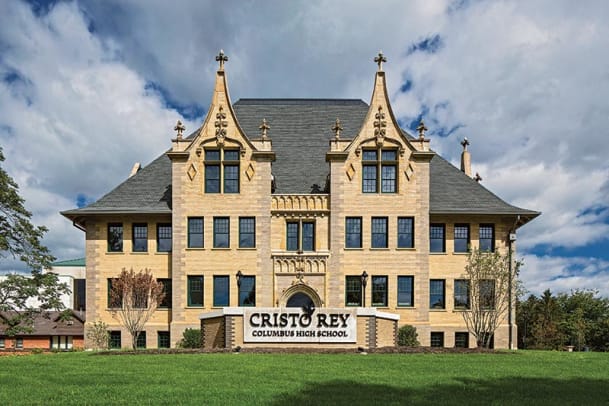Thông tin sản phẩm
Relationships programs often helps find LGBTQ+-friendly spots and hidden communities.
If you are a heterosexual pick out about contemporary relationship world, you might incorporate numerous software to help make the techniques a tiny bit easier. For most, could mostly appear to be a fun, smooth online game, however for people in the LGBTQ+ area, dating applications can serve a bigger, actually necessary, factor. Even while culture has started to become more accepting of LGBTQ+ people, dating apps can offer a sense of security and people they may n’t have usually — one thing their particular heterosexual alternatives typically neglect.
For these reasons and a lot more, it may are available as not surprising that a unique study shows nearly two times as lots of LGBTQ+ group incorporate matchmaking apps as heterosexual ones. This survey, executed In June 2017 by idea, a lady health software  , and Kinsey Institute, is among the world’s premier worldwide intercourse studies. Translated into 15 dialects, it was given answers from over 140,000 people in 198 countries.
, and Kinsey Institute, is among the world’s premier worldwide intercourse studies. Translated into 15 dialects, it was given answers from over 140,000 people in 198 countries.
But while the effects may not are available as a shock, these are typically very significant with the LGBTQ+ area and past. To discover the reason why, A Plus talked with lesbian matchmaker Dr. Frankie Bashan of bit Gay guide.
“contemplate it — this has been difficult for people meet up with one another,” Bashan advised an advantage, keeping in mind that before internet dating applications, LGBTQ+ folks depended on pubs, lounges, and other people’s homes — solutions that have over the years already been (but still are) quite few for LGBTQ+ everyone. Programs, however, can transform anybody’s cellphone into a virtual homosexual pub in which, no matter if they don’t render a long-lasting fancy link, they can however generate relationships with fellow LGBTQ+ folk and discover possibly undetectable forums.
They even let clarify who’s available, and who’sn’t. “it’s not necessary to experience the fear of becoming declined since you discover the truth this particular person’s in fact direct or even to offend someone whenever you address them therefore express interest,” Bashan added.
Although all daters can expect a getting rejected once in a while, heterosexual individuals typically need not fear these a getting rejected flipping violent. Though this undoubtedly is not constantly your situation for LGBTQ+ folk, info collected by the Federal agency of examination have consistently found that lesbian, gay, and bisexual someone, and those observed is those sexual orientations, “are assaulted more than heterosexuals in accordance with their calculated population size in the usa,” in line with the people legal rights promotion base. Because of this, Bashan included, internet dating programs offer an extra amount of safety for generally marginalized communities.
The significance of experience secure can not be understated for all the 54 per cent of LGBTQ+ individuals who mentioned they certainly were concerned with being the sufferer of a dislike crime in a 2006 poll. This worry is during stark comparison into general inhabitants: around one out of 10 associated with the general populace (6 % in 2007) “frequently concerns about dislike violence.” The HRC notes that “anecdotal facts also shows that detest criminal activities against LGB and transgender people include underreported in america,” because some subjects don’t want to become determined, and so “outed” in authorities research.
That same 12 months, intimate direction was placed because the next finest motivator for dislike crime events (17 per cent of overall problems), after battle and faith. Assault against transgender folk, particularly, happens to be rising nowadays. Advocates monitored at the very least 22 deaths of transgender folks in 2016 due to deadly assault — by far the most actually ever tape-recorded. According to research by the HRC, these crimes had been committed by both anyone known to the victims, such as her associates, and total visitors. Whilst each and every instance differed in detail, HRC observed that, mathematically, deadly physical violence disproportionately impacts transgender people of tone since they’re one particular susceptible members of town, because of the intersections of racism, sexism, and transphobia very often rob them of occupations, housing, medical care along with other requirements.
This, Bashan extra, may clarify why transgender someone tend to “be a lot more old-fashioned” with regards to internet dating and placing themselves online — simply because they have the the majority of to fear. “They can be always are discriminated against and marginalized.” They truly are, Bashan feels, the smallest amount of probably members of the queer area to use matchmaking applications and would rather become more more likely to place on their own in a safe and reliable database for a queer or transgender matchmaking provider.
This mindful manner could not feel any further distinct from that of many men exactly who, irrespective of sexual direction, need dating applications with the same carefree strategy as chocolate Crush. While Bashan presently best works with lesbian and bisexual clients, she has anecdotally noticed that homosexual guys are the most likely people in the queer neighborhood to use matchmaking software simply because they “are much more comfortable getting by themselves available and . taking risks.”
Women, on the other side, hands are far more conventional when it comes to online dating and sometimes never think as comfortable utilizing online dating applications, and sometimes even hiring a matchmaker, because “they think like there is something completely wrong together,” based on Bashan. That’s not to say that, as Bashan extra, “guys in the beginning are coached, ‘It’s okay to date’ [and] ‘you must query to track down somebody.'” No matter sexual positioning, just men are encouraged to sow those wild oats, and matchmaking software created specifically for homosexual people like Grindr are, with 5 to 6 million month-to-month effective consumers, unsurprisingly prominent.










 0922-03-5678
0922-03-5678



